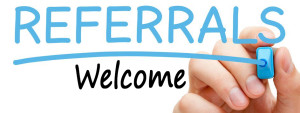
When Faced with Resistance…
When faced with resistance, apply persistence!

…Things You Should Know about HIV and Safer Sex (cont.)
- If you chose to have sex, use a latex condom with EVERY partner. No exceptions.
- Use protection, wear a latex condom.
- Use a new latex condom each time you have vaginal, anal or oral sex.
- Use water based lubricant with latex condoms.
- Never use an oil-based lubricant such as hand lotion or baby oil. It weakens the latex and the condom may break.
- Use a latex barrier (a condom cut in half or a dental dam) if you have oral sex with a women.
- Massage, hugging and masturbation are safe.
- It’s safer not to use drugs.
- Insist on watching your NEW tattoo needle come out of packaging before getting a tattoo. Never share needles or inks for tattooing or piercing.
- NO CONDOM, NO SEX, NO WAY.” tells your partner you’re serious about safer sex.
- Talk about safer sex with EVERY partner before you have sex.
- Ask your partner about his/her sexual history, behaviors and drug usage before you engage in any sexual activity.
- If you are infected and do not inform your sexual partner of your HIV status before sex and you engage in unprotected sex and transmit HIV to that person you have committed a felony.
- Taking a HIV test is the only way to know you are not infected.
- Get tested three to six months after any unprotected exposure.
- You have options. You can buy a home HIV test kit at most drug stores. Then contact the nearest community based organization for counseling or to ask questions. You can also get tested by a doctor, health clinic, community based organization or public testing center.
- Some testing sites keep results confidential while others utilize anonymous testing. Confidential testing uses your real name. You and your doctor will know the results. Anonymous testing doesn’t use your name at all. Only you will know your results.
- People are still dying of AIDS related illnesses.
- THERE IS NO CURE! Remember you are in charge.

15 Things You Should Know about HIV and Safer Sex
- Anyone can get HIV (the virus that causes AIDS)
- HIV attacks your body’s immune system.
- A person with HIV may get sick with certain diseases and then be diagnosed with AIDS.
- Many people who have AIDS in their twenties become infected with HIV in their teens.
- You can be infected with HIV for 10 or more years without having any recognizable symptoms.
- You can’t tell by looking if someone has HIV.
- You can take steps to protect yourself from HIV. Put yourself first. Get tested today.
- If you put yourself at risk you can become infected with HIV. IT DOESN’T MATTER WHO YOU ARE.
- You are at risk any time you exchange body fluids (semen, blood, vaginal fluids or breast milk).
- You can become infected if you have sex with an infected person.
- Unprotected sex among infected partners may cause cross-infection resulting in drug resistance.
- You can also become infected if you share needles or syringes with an infected person.
- HIV is not passed through hugging, hand shaking, and coughing, talking, sneezing or toilet seats, water fountains, bathrooms or eating utensils.
- Safer sex means taking steps to protect yourself.
- Choosing not to have sex is safest.






